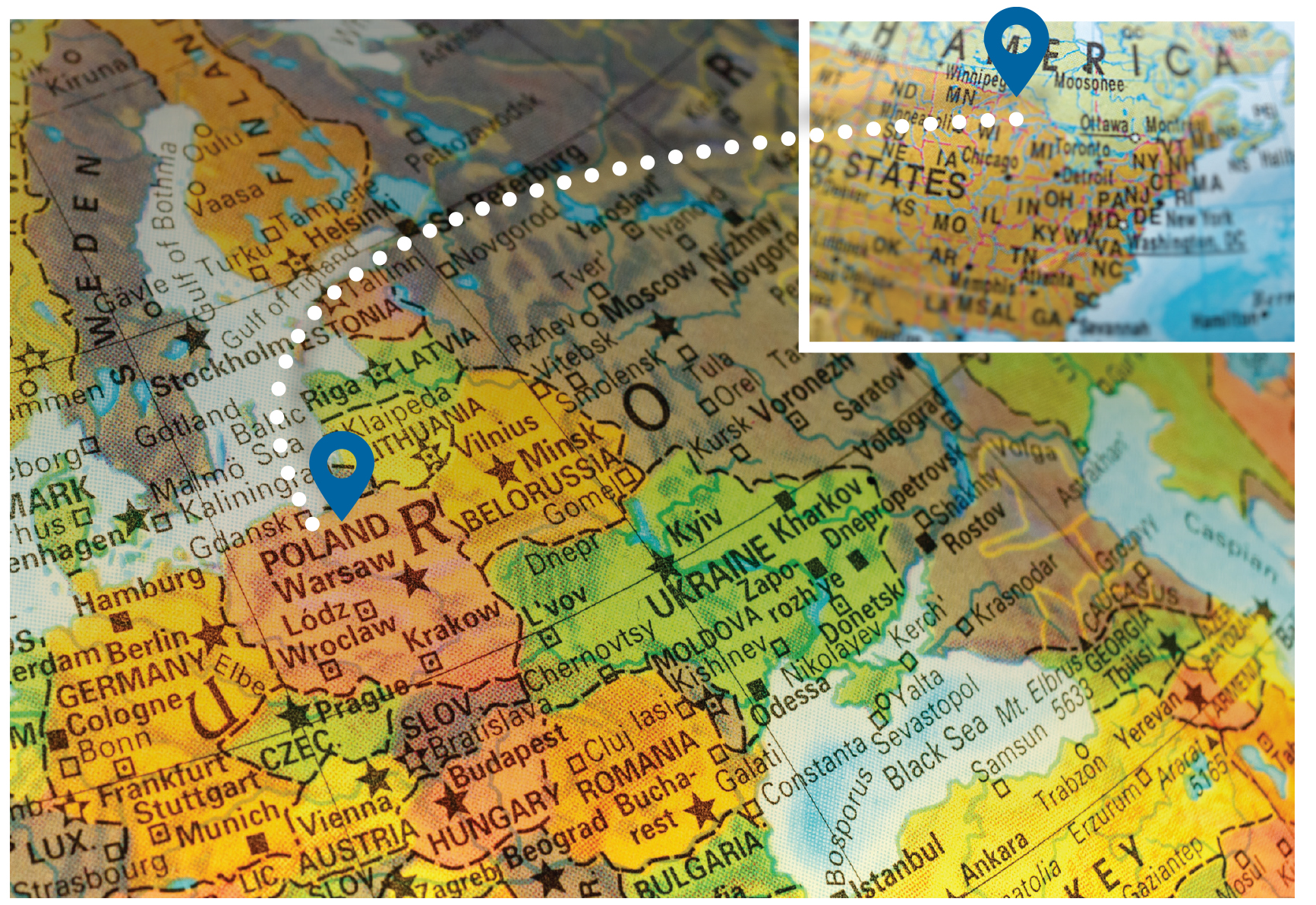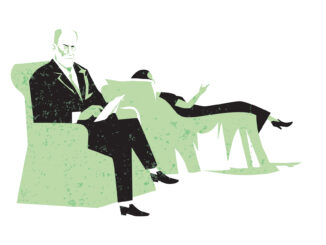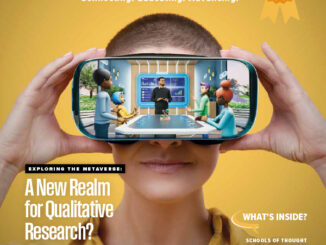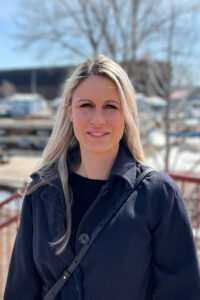
By Dr. Weronika A. Kusek, Associate Professor, Northern Michigan University, Marquette, Michigan, wkusek@nmu.edu
In this article, Professor Kusek shares how she navigates the complexities of living in two countries. She has teaching commitments in one country and research activities and extended family in the other country. For Kusek, Michigan and Poland are both home.
Where Is Home?
When asked where my home is, I often struggle to answer this question. I am emotionally and professionally involved in two places relatively far apart.
I live most of the year with my immediate family in Michigan, where I work as an associate professor of human geography. I keep in close contact with my family in Poland, where I also conduct research on emigration and immigration during the summer. I focus on maintaining close relationships with family and friends from Michigan and Poland.
While “Where is home?” is a tough question for me, the best answer may be: home is where the heart is—and my heart is in Marquette, Michigan, and Poznan, Poland.
From One Place to Another
I arrived in Detroit, Michigan, from Poznan, Poland, almost two decades ago. I traveled to the U.S. that summer with the intention of spending one semester as an international student. I was 21 at the time.
When I first traveled to the U.S., I was excited, ready to explore, and thrilled to build friendships with international students from around the world. As a 21-year-old, I envisioned myself returning to Poland that December, graduating college, and working for a European Union organization. At that time, I was thinking about living in a bustling city in Poland, like Warsaw, or elsewhere in Europe, like Brussels.
I imagined spending my weekends visiting European capitals and raising my future children as cosmopolitan EU citizens. Yet, my life took a different path. I was fortunate to work with a group of dedicated and supportive academics who encouraged me to apply for graduate programs in the U.S.
After completing a Master’s degree and later my PhD, I naturally applied for academic positions in the U.S. While I was a student, my husband built his career in the U.S., so we decided it was best for both of us to seek professional opportunities here. We lived in Ohio for nine years before I took a job in the Upper Peninsula (UP) of Michigan. A decade after that initial arrival to Michigan, I find myself in a more rural locale, in the quaint remoteness of Michigan’s UP, with distant drives to major cities in the upper Midwest.
I call Michigan my new home. A home where I had to reimagine my identity, my daily activities, and my way of interacting with the environment around me. I decided to learn how to appreciate Lake Superior’s beauty, discover hiking, and appreciate long snowy winters.
All these activities were foreign to me when I moved to the United States as a college student. Skiing, firepits, and picnics on the beach were activities I rarely enjoyed growing up in Poland. In the Upper Peninsula, they have become my daily routine.
This experience of redefining my identity encouraged me to think about how place influences who we are.

My Research
Because I found myself experiencing life in new places since my early 20s, I wanted to better understand how other people experience moving to new places as well. Our homes change, but we carry our identity. We find ways to settle into our new home, and we build a new hybrid identity.
My early research focused on how immigrants influence the communities they live in. My PhD research focused on Poles in London. I regularly traveled to London, met with fellow Poles, and got to know and understand the living environments that they created there. Being Polish myself, I was comfortable connecting with Polish migrants in London.
My current work focuses on migrants moving to Poland, something I observed in the past few trips back to my native country. This led me to want to know why people move to Poland today, and I focus especially on the influx of Ukrainian laborers moving into Poland.
Notably, this research is led by current global events. Many Ukrainians come to Poland due to the refugee crisis caused by the Russian invasion of Ukraine. This conflict has resulted in almost 4 million refugees arriving in Poland.
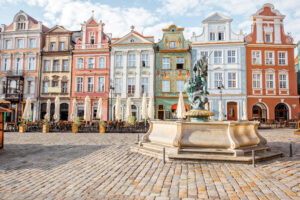
Balancing My Personal and Professional Lives in Two Places
What’s unique about my research in Poland is that it extends beyond a short, tightly planned visit that allows me to almost lead two parallel lives in two locations. I usually depart Michigan for Poland in mid-May and return to Michigan in early August. I also have about a month between semesters in December and January to go to Poland. So, I routinely travel between Michigan and Poland twice each year.
Splitting academic and personal lives is not easy, but I find ways to professionally and emotionally make it work. Flexibility and time management are key to maintaining sanity when one navigates the complexities of living in two places. But it is most important to be able to quickly adjust to the changing realities of my daily emotional and practical life.
Over time, I also noticed that each location where I spend my time has its own rhythm. My life in Michigan consists of 16-week semesters of teaching, writing, and serving the university. It is structured, repeatable, and confined to specific spaces and places.
In Poland, where I collect data and spend time with my family, my plans focus on building new experiences, discovering new research opportunities, and catching up on things that have happened while I was gone.
Balancing my professional life while visiting family can present challenges. My family and friends understand that during certain hours of the day, I cannot meet with them, or I am unable to answer my phone. But during this time, they spend valuable time with my kids so that I can work. I rely on the “institution” of grandparents to secure care for my young children.
My children love our dual lifestyle. They cherish their time with family and friends in Poland—and they truly enjoy the process of traveling as well. Every time we return to Marquette, my kids are filled with experiences and memories they apply in school. They enjoy sharing photos of the places they visited in Poland and talking about the foods they tried.
Regardless of this general difference, clear organization and a plan help me comfortably work through the challenges of living in two realities.

Beyond The Logistical: Navigating Identities and Trust
Outside of managing the practical aspects of these two lives, I must navigate how I am perceived by research subjects in Poland—who now see me as an “American researcher.”
Researcher positionality is important to recognize. Positionality is the social and political context that shapes our identity. Thus, it is important that we think about how our own experiences and identity influence our biases, perceptions, and outlooks of people and what is happening around us.
But it’s also important to be aware of how others perceive us.
While my familiarity with Poland, my first home, and my own immigrant experiences help me resonate with those I interview, they sometimes feel I might be a little disconnected from Poland. This means others perceive my position differently than I perceive myself.
Building trust with my interviewees and helping them understand what I am aiming to achieve as a researcher is a challenge, especially because I am working with a vulnerable population in Poland. To build relationships, I try to find community insiders who can reassure the participants about my intentions.
I engage with my research participants in their world to find opportunities to build trust and establish connections. I attend and celebrate Ukrainian holidays in Poznan—events that can help me become aware of the changes happening in my hometown, and how Ukrainian immigrants celebrate their culture even while integrating with their new local community.
This enables me to provide some context to the topics I study and connect more with the Ukrainian community in Poland. Meeting people, interacting with them, and listening to their stories and opinions enable me to gather new understandings of how people from different cultures interact.
My ability to spotlight, explore, and learn about these events is closely linked to my spending enough time in Poland to casually learn about these activities from people around me.
Home 2 Home: Important Lessons for the Multilocation Researcher
While I now spend most of my year in Michigan, I put effort into ensuring that I visit Poland at least three months out of the year. This also allows me to balance my personal and professional lives in two localities, as well as my kids’ school calendar.
Research activities can be overwhelming, especially when doing fieldwork in another country with limited time there.
With my focus now on Ukrainian immigrants and refugees in Poland, I find linguistic differences pose new challenges. For example, a big difference I notice is how much more time-consuming it is to interview. I can often only interview half of the participants I would normally interview if a language barrier were not an issue. I am still trying to understand how to most effectively address these language barriers I now face.
But overall, across the last 10 years, I have found ways to be more realistic about how much I can do in Poland.
I no longer try to do it all: collect data, write papers, and then submit to journals, all while I am in Poland. When in Poland, I focus on the data collection process. This helps me maximize activities that can only be done in the field. I leave the writing portion for when I return to Michigan.
As an international faculty member in the U.S., I never forget about my own immigrant experience, and this is what motivates me to keep studying the migration of people back to my original home of Poland.
I would imagine that living in two places is certainly not for everyone. Some might find it stressful, overwhelming, or too demanding. With such challenges, I see this lifestyle as an opportunity, and traveling between homes has become my life as a researcher.
My research journey into migration studies began with my own experience. It’s allowed me to fulfill my initial dream of spending time in Europe’s bustling cities—at least during my breaks between semesters when I travel back to Poland.
As a researcher, I enjoy learning about peoples’ experiences as they navigate their own migration journeys.
Today, I embrace these opportunities to learn, grow, and share my experiences with students, friends, and family in both homes.

